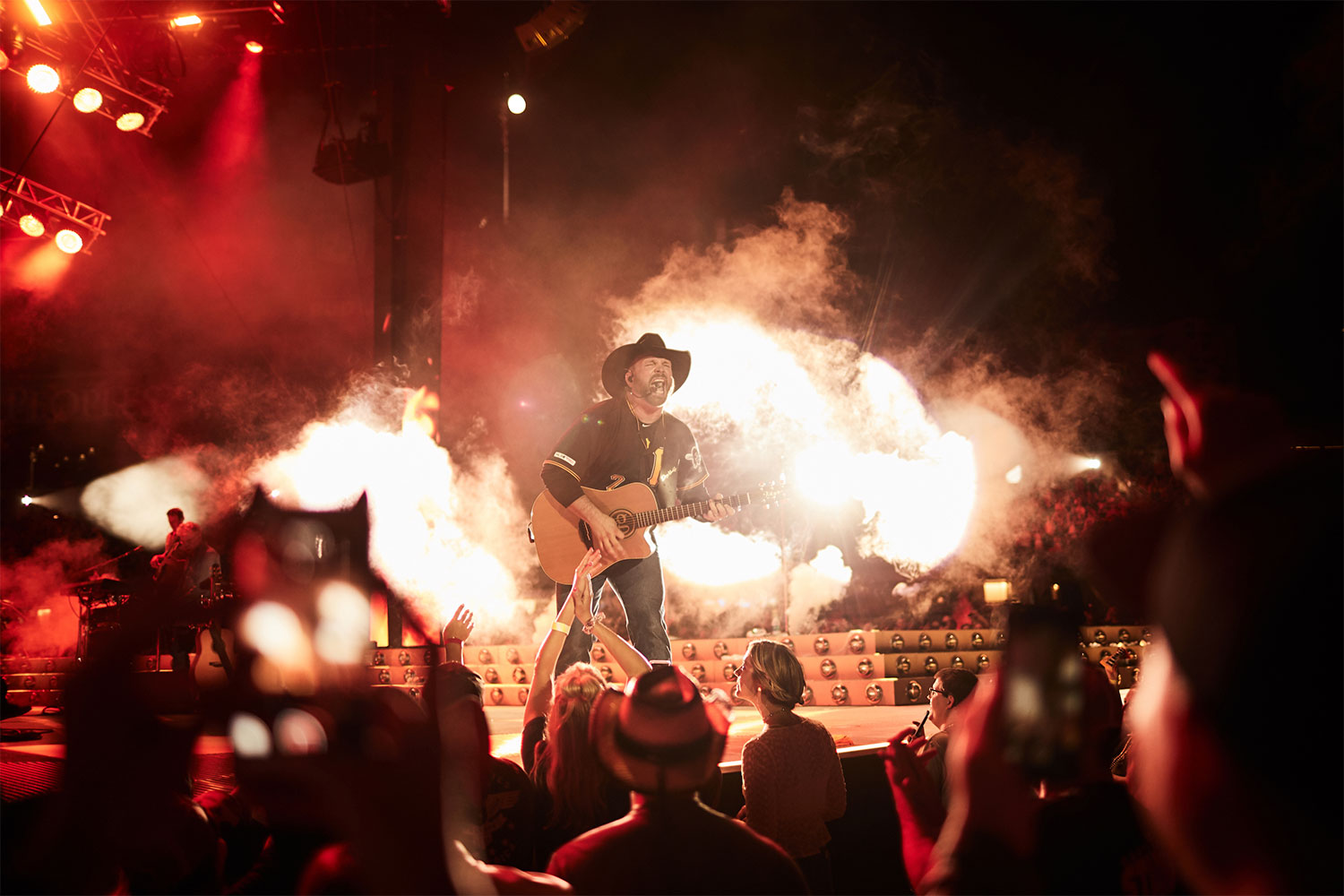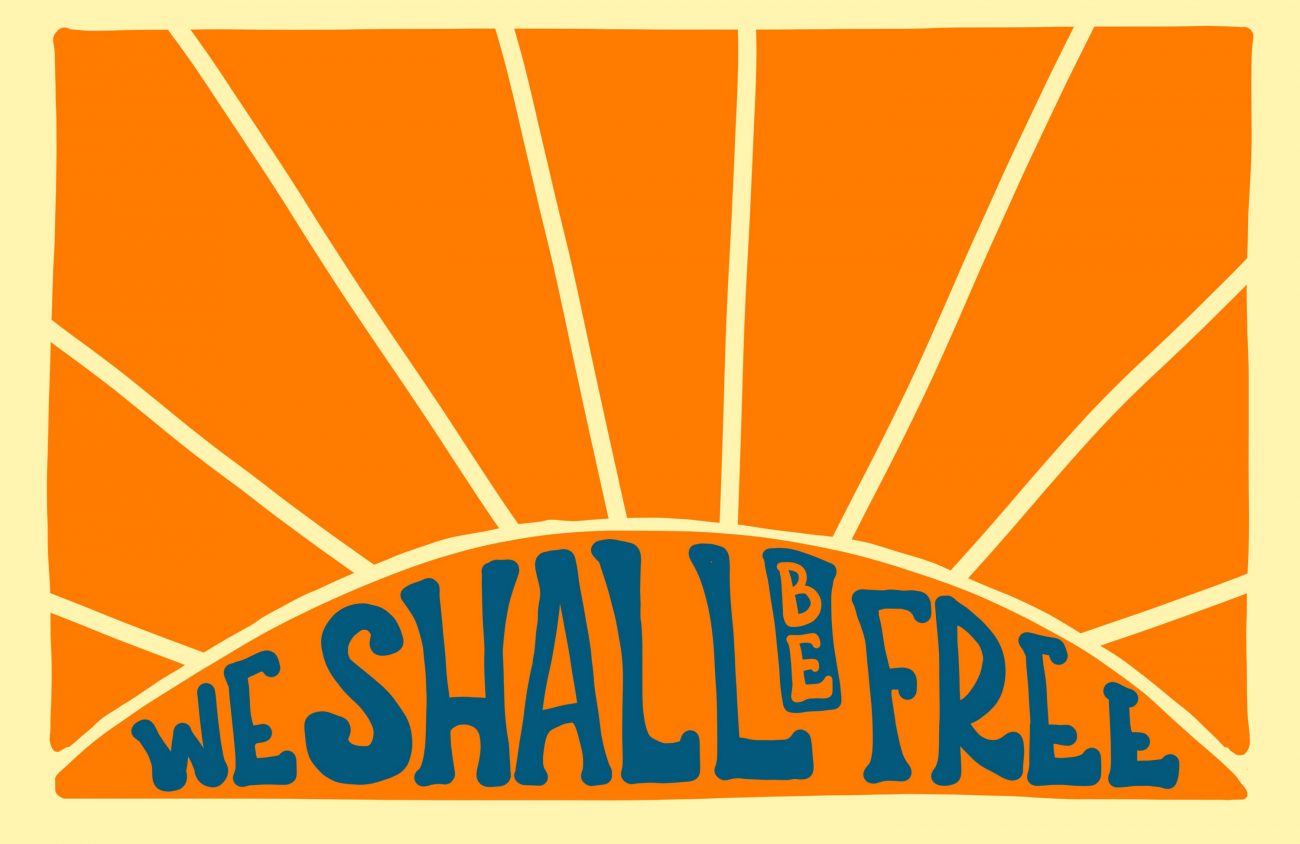We here in Eugene have garnered a reputation for being hippies. So it would seem we might turn up our noses at country music mega-star Garth Brooks making Eugene a stop on this year’s 10-city U.S. tour — coming here, singing about rodeos, trucks, booze and friends from those low places.
But wait, what if I told you that Garth Brooks might just be one of us?
That’s right. Garth Brooks is a hippie.
Turn your attention to the songs, specifically the ones that Brooks wrote himself or co-wrote. The big one that comes readily to mind was a song he penned in response to the 1992 L.A. riots, “We Shall Be Free.”
This song has Brooks asking the world for freedom — freedom from religious persecution, bigotry, hunger, racism and more. It was his plea for an end to homophobia — a lyric that states “when we’re free to love anyone we choose” — which, in fact, led to the song being pulled from dozens of country music stations around these great United States. This in turn made it Brooks’ first hit not to reach the country music top 10.
Yet Brooks stood by the song — stands by it still.
Enlarge

Courtesy of 8, Ten Inc.
Add in some songs touting strong females — notably “That Summer,” which features a widow, working her own ranch “hellbent to make it on her own.” Or “The Thunder Rolls,” with that often unplayed third verse, wherein the lead, waiting on her cheating husband to return home after a night out, resolves the evening by making sure that will be the last night “she wonders where he’s been.”
Or a song like “Standing Outside the Fire” — a celebration of vulnerability and daring greatly (hey, hey Brene!) that might remind you that “life is not tried it is merely survived/ if you’re standing outside the fire.” And add in a song like “Change” that encourages the listener to keep practicing good deeds for fellow man, and though they might not change much in the big picture, that fact shouldn’t stifle wanting to be of service to humanity.
Brooks stands out as groovier by the second.
The thing most striking about all of this, aside from his musical genre, is Brooks’ audience. Being this country’s best-selling solo artist, Brooks has played to literally millions of country music fans over the years, over the airwaves, from country music stations, in packed arenas and even on The Muppet Show — where he famously performed “We Shall Be Free,” harmonizing with the cast.
Historically speaking, and largely with the boom of big-arena country music of the late ’80s and the ’90s, these crowds and fans have demonstrated a decided lean to the right. Preconceptions abound and interwoven are the exceptions — like the ones that pulled “We Shall Be Free” from the airwaves and limited its play — but here are scads of music fans who know every lyric, every note. Brooks taught it to them and sings it to them, with them, still.
In an era of division, us versus them, me versus you, left versus right and so on, these are the moments we should be looking for. Similarities. Common thread. Common ground. A song we can all sing together.
There are the other songs. Songs about rodeos, trucks, booze, good times, drugs, honkytonks, horseback, broken hearts, broken knuckles, broken dreams. Sure. But if you haven’t made a plan to be inside Autzen Stadium on Sunday night, perhaps find a way to wander past the walls while this sold out show rages on. You might catch a contemporary hymn rising through the night air, thousands of voices singing along, “when the last thing we notice is the color of skin/ and the first thing we look for is the beauty within/ when the skies and the oceans are clean again/ then we shall be free.”
And pass that peace on, man.
